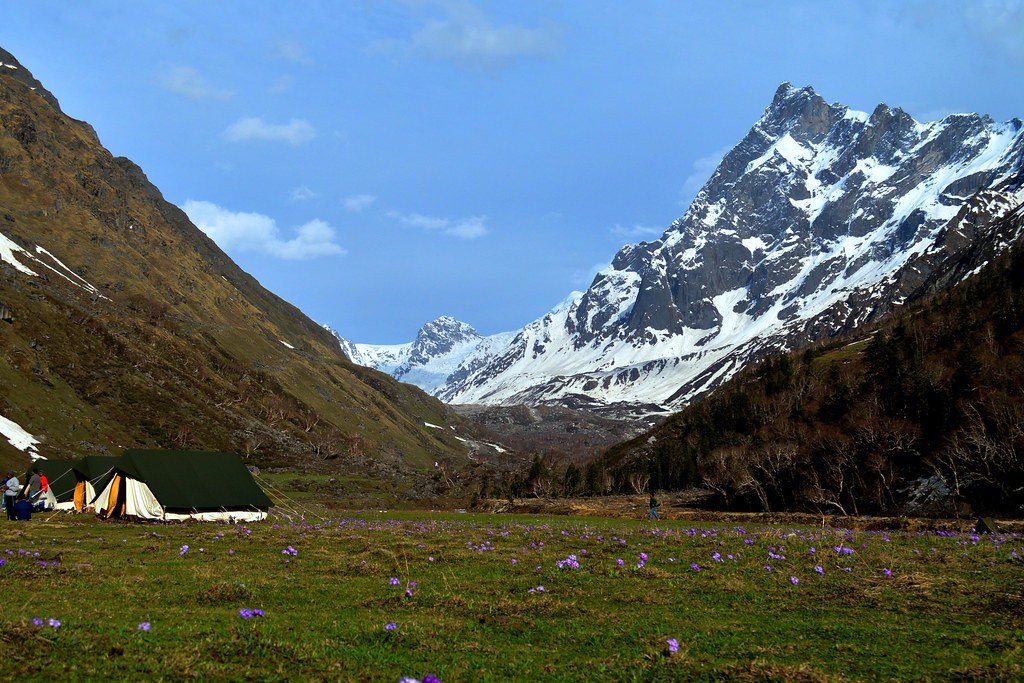Kuno National Park | Ultimate Tour Guide | Kuno Tiger Reserve & Wildlife Safari
Thing To Know Before Visiting Kuno Natinoal Park
Before planning a visit to Kuno National Park, it’s crucial to be aware of certain aspects to ensure a safe, enjoyable, and responsible experience. Here are some things to know before going to Kuno National Park:
- Entry Permits:
- Obtain the necessary entry permits and permissions required to visit the national park. Check with the local forest department or relevant authorities for current regulations and fees.
- Seasonal Variations:
- Understand the seasonal variations in weather and wildlife activity. The park may have distinct attractions and experiences during different seasons, so plan your visit accordingly.
- Wildlife Viewing Guidelines:
- Familiarize yourself with the guidelines for wildlife viewing. Maintain a safe distance from animals, avoid making loud noises, and adhere to responsible wildlife photography practices.
- Accommodation:
- Check the availability of accommodation options. Depending on the park’s facilities, you may need to make advance reservations for lodging, especially if planning an overnight stay.
- Travel Essentials:
- Pack appropriate clothing, comfortable footwear, and essentials like sunscreen, insect repellent, and a first aid kit. Be prepared for varying weather conditions and outdoor activities.
- Guided Tours:
- Consider opting for guided tours provided by the park authorities. Knowledgeable guides can enhance your wildlife experience and provide valuable insights into the park’s flora, fauna, and conservation efforts.
- Conservation Practices:
- Familiarize yourself with the conservation practices in place. Understand the park’s efforts in wildlife conservation, the Asiatic lion reintroduction project, and how visitors can contribute to these initiatives.
- Local Customs and Etiquette:
- Respect local customs and etiquettes. Interact politely with the park staff, local communities, and fellow visitors. Follow any specific rules and regulations set by the park authorities.
- Safety Measures:
- Be aware of safety measures within the park. This includes following designated trails, avoiding risky behaviors, and being cautious of wildlife movements, especially during specific seasons.
- Waste Management:
- Adhere to responsible waste management practices. Carry back any litter and dispose of it in designated bins. Minimize your ecological footprint during your visit.
- Emergency Contacts:
- Keep a list of emergency contacts, including local authorities, park officials, and medical services. Be aware of the nearest medical facilities and their contact details.
- Research and Planning:
- Conduct thorough research about the park, its attractions, and any recent updates. Plan your itinerary, but also be flexible, considering the unpredictable nature of wildlife sightings.
By being well-prepared and informed, you can contribute to a positive and sustainable experience at Kuno National Park while respecting the natural environment and wildlife conservation efforts.
Wildlife Tourism At Kuno National Park

Wildlife Safari At Kuno National Park
Entry To Kuno National Park
here is a general guide based on common safari booking practices:
- Online Booking:
- Many national parks, including Kuno, offer online booking facilities for safaris. Visit the official website of the park or the designated wildlife department’s portal to check for availability and make reservations.
- Offline Booking:
- If online booking is not available or preferred, you can inquire about safari availability and make reservations through the local forest department office or park authorities.
- Authorized Agents:
- Some parks work with authorized agents or tour operators. You may choose to book your safari through these agents, ensuring that they are recognized and authorized by the park authorities.
- In-Person Booking:
- Depending on the park’s policies, on-the-spot bookings may be possible at the entry gate or designated booking counters. However, it’s advisable to confirm this in advance.
Necessary Documents:
- Carry a valid government-issued photo identification document for each visitor, such as a passport, Aadhar card, voter ID, or driver’s license. Ensure that the names on the identification documents match those provided during the booking.
- After booking, you will be issued a safari permit. Ensure that you carry a printout or digital copy of the permit, as it will be checked at the entry gate.
- Keep the receipt of the entry fee handy. This may be a part of the overall safari booking or a separate fee paid at the entry gate.
- If you are bringing your vehicle, ensure that you have the necessary permits and vehicle details. If the safari includes a guide, confirm the details of the assigned guide
Always verify the latest information by contacting the official sources of Kuno National Park or the relevant wildlife department. Rules and procedures are subject to change, and compliance with the park’s guidelines ensures a smooth and enjoyable safari experience.
Tourist Attractions In Kuno National Park
Kuno National Park is primarily known for its wildlife conservation efforts, particularly the Asiatic lion reintroduction project. While the park’s main attraction lies in its diverse flora and fauna, here are some points of interest for tourists:
- Wildlife Safaris:
- Embark on a wildlife safari to explore the park’s diverse ecosystems and spot various species of fauna, including deer, antelope, wild boars, and, potentially, the Asiatic lion.
- Kuno River:
- Enjoy the scenic beauty of the Kuno River, which flows through the park. It provides opportunities for bird watching and offers a serene ambiance for nature enthusiasts.
- Historical Ruins – Kuno Palace:
- Explore the historical ruins within the park, including the remnants of Kuno Palace. These archaeological remains provide a glimpse into the region’s cultural and historical significance.
- Bird Watching:
- Kuno National Park is a haven for bird watchers. Keep an eye out for various bird species, both resident and migratory, making it an ideal destination for bird enthusiasts.
- Conservation and Research Centers:
- Learn about the park’s conservation efforts and wildlife research initiatives. Some parks have dedicated centers that provide information about ongoing projects and contribute to environmental education.
- Flora Diversity:
- Appreciate the rich diversity of flora within the park. Guided tours may offer insights into the different plant species, trees, and medicinal herbs that contribute to the park’s biodiversity.
- Star Gazing:
- Given its remote location, Kuno National Park offers excellent opportunities for star gazing. Clear skies allow visitors to witness the beauty of the night sky away from urban light pollution.
Near By Places To Visit Kuno National Park
While Kuno National Park is primarily known for its wildlife and conservation efforts, there are several nearby places that visitors can explore to enhance their overall experience:
- Shivpuri:
- Located approximately 100 kilometers from Kuno National Park, Shivpuri is known for its historic temples, including the Chaturbhuj Temple. The town offers a blend of cultural and religious attractions.
- Sheopur:
- The district headquarters of Sheopur is around 50 kilometers away. Visitors can explore local markets, historical sites, and get a taste of the region’s culture.
- Gwalior:
- Gwalior, about 250 kilometers from Kuno, is renowned for its majestic Gwalior Fort, ancient temples, and the historic Jai Vilas Palace. The city has a rich cultural heritage.
- Datia:
- Datia, situated approximately 180 kilometers away, is famous for the Pitambara Peeth, a revered pilgrimage site. The Datia Palace is also a notable historical attraction.
- Jhansi:
- Jhansi, located around 250 kilometers from Kuno National Park, is known for its historical significance, particularly the Jhansi Fort and the Rani Mahal.
- Orchha:
- Orchha, about 260 kilometers away, is a historical town with impressive architecture, including the Jahangir Mahal, Raj Mahal, and the Chaturbhuj Temple.
- Chanderi:
- Chanderi, situated around 300 kilometers from Kuno, is famous for its historical monuments, including forts, palaces, and ancient Jain temples.
- Bhind:
- Bhind, located approximately 90 kilometers away, is known for its ancient temples, such as the Mankameshwar Temple and the Jain Mandir.
- Guna:
- Guna, around 230 kilometers away, offers historical sites like the Fort of Jhalkaribai, as well as natural attractions like the Gandhi Sagar Dam.
- Khajuraho:
- Khajuraho, about 400 kilometers from Kuno, is renowned for its UNESCO World Heritage-listed temples, known for their intricate erotic carvings.
How To Reach kuno National Park
To reach Kuno National Park from Delhi, you have several transportation options. The park is situated in the Sheopur district of Madhya Pradesh. Here are the common modes of transportation:
- By Road:
- Distance: The road distance between Delhi and Kuno National Park is approximately 500 kilometers, and the journey takes around 10-12 hours by car, depending on the route and traffic conditions.
- Route: You can take the NH19 (previously known as NH44) route that connects Delhi to Sheopur. Alternatively, you can plan your route based on current road conditions and preferences.
- Self-Drive or Taxi: You can drive or hire a taxi to reach Kuno National Park. Ensure that your vehicle is in good condition for a long journey.
- By Train:
- Nearest Railway Station: The nearest major railway station to Kuno National Park is Gwalior Junction.
- Train Options: You can take a train from Delhi to Gwalior and then proceed to Kuno National Park by road. Gwalior is well-connected by trains, including the Shatabdi Express and other express trains.
- Travel Time: The train journey from Delhi to Gwalior takes around 3-4 hours, and the road journey from Gwalior to Kuno National Park can take approximately 5-6 hours.
Here Are Some Trains That Commonly Operate Between Delhi and Gwalior:
| Train Name | Train Number | Departure Station | Departure Time | Arrival Station | Arrival Time | Class |
|---|---|---|---|---|---|---|
| Shatabdi Express | 12001/12002 | New Delhi | 6:00 AM | Gwalior | 10:28 AM | Executive Class, Chair Car |
| Gatimaan Express | 12049/12050 | Hazrat Nizamuddin | 8:10 AM | Gwalior | 10:07 AM | Executive Class, Chair Car |
| Jhelum Express | 11077/11078 | Pune Junction | 5:15 PM | Gwalior | 7:05 AM (Next Day) | AC 2 Tier, AC 3 Tier, Sleeper Class |
| Bhopal Express | 12156 | Hazrat Nizamuddin | 9:40 PM | Gwalior | 1:40 AM (Next Day) | AC 2 Tier, AC 3 Tier, Sleeper Class |
| Hazrat Nizamuddin – Indore Intercity Express | 12416 | Hazrat Nizamuddin | 6:05 AM | Gwalior | 10:00 AM | AC Chair Car, Second Sitting |
- By Air:
- Nearest Airport: The nearest airport to Kuno National Park is Gwalior Airport (GWL).
- Flight Options: You can book a flight from Indira Gandhi International Airport (DEL) in Delhi to Gwalior Airport. The flight duration is typically around 1 to 1.5 hours.
- Road Travel: After arriving at Gwalior Airport, you can hire a taxi or use other local transportation options to reach Kuno National Park.
- Bus Services:
- There might be bus services available from Delhi to Sheopur or nearby towns. Check with the local bus services or travel agencies for the availability of direct or connecting bus routes.
Other National Park:
Trending Articles:
35 Best Places To Visit In Jaisalmer | Top Things To Do | Jaisalmer Tourism
Kanha National Park | Kanha Tiger Reserve & Wildlife Safari | Ultimate Tour Guide
Panna National Park | Panna Tiger Reserve & Wildlife Safari | Ultimate Tour Guide





